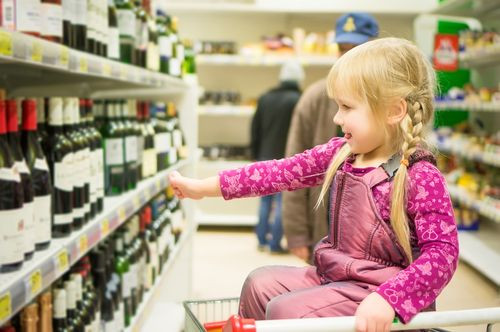Should Parents Let Their Kids Sip Alcohol? Scientists Advise Caution About Supervising The First Drink

Early sips of alcohol and parental supervision of drinking can protect children from alcohol abuse later, according to a common line of reasoning. As evidence, many parents point to Europe, where legal drinking ages are lower or unenforced, and table wine flows at every meal.
Many doctors, however, remain ambivalent on the best way to prevent a major public health problem. More than one in five high school students in the United States was binge drinking in 2011, according to a survey cited by the Centers for Disease Control and Prevention. Yet, despite the Europhile parents’ arguments, the picture sometimes seems more grim across the pond, where half of students in a 2009 survey reported having been intoxicated “to the point of staggering when walking, having slurred speech or throwing up.”
In a new report, published Tuesday in the journal Alcoholism: Clinical & Experimental Research, experts on addiction compiled the available evidence on alcohol sipping among children and attempted to draw a line between those statistics and statistics about problem drinking later in life. Just seven percent of 12-year-olds reported having consumed an entire standard alcoholic beverage, but “more than half of 12-year-olds have already had a sip, and even about one-third have by age 8,” they said in a statement. “The question for parents will be: 'Does that matter?’”
There isn’t much national data on the topic, no “ongoing federal surveillance study” to draw from. So the researchers, led by Dr. John E. Donovan, a psychiatrist and epidemiologist at the University of Pittsburgh, used community surveys conducted in Pennsylvania’s Allegheny County. They call it the Tween to Teen Project, from which they've just reported two main findings.
First, children who said they had tasted alcohol said their parents were OK with it. The parents, in interviews, confirmed their children’s perceptions, indicating at least a common understanding between the parents and their children about alcohol use before the age of 12. More significantly, the scientists discovered that children who sipped alcohol before 12 were no more likely than their non-sipping peers to be involved “in other kinds of problem behavior in adolescence, such as problem drinking, marijuana use, other drug use, delinquent behavior and risky sexual behavior,” Donovan said. “This finding suggests that sipping during childhood is not itself a problem behavior like delinquent behavior or drug use.”
Other scientists say this is perfectly healthy. Dr. David J. Hanson, of the State University of New York, Potsdam, has argued that "societies that normalize drinking have fewer and less serious drinking problems than those that 'abnormalize' it," by outlawing it or associating it with deviance. In these societies, “young people learn about alcohol from an early age within the safe environment of the home and from the parents," which is preferable to "a fraternity house."
But Donovan and his colleagues aren’t so sure. Other studies have shown that having a sip before 10 leads to having “more than a sip” before age 15. “Early-onset drinking is associated with numerous negative outcomes,” he said, from car wrecks to risky sexual behavior. Ultimately, they say, it’s best to err on the side of caution until more conclusive evidence comes out. "This research suggests that if children do not see their parents as strongly disapproving of child sipping, the children will be more likely to take a first step into alcohol use,” Donovan said.
Source: Donovan JE, Molina BSG. Antecedent Predictors of Children's Initiation of Sipping/Tasting Alcohol. Alcoholism: Clinical & Experimental Research. 2014.
Published by Medicaldaily.com



























